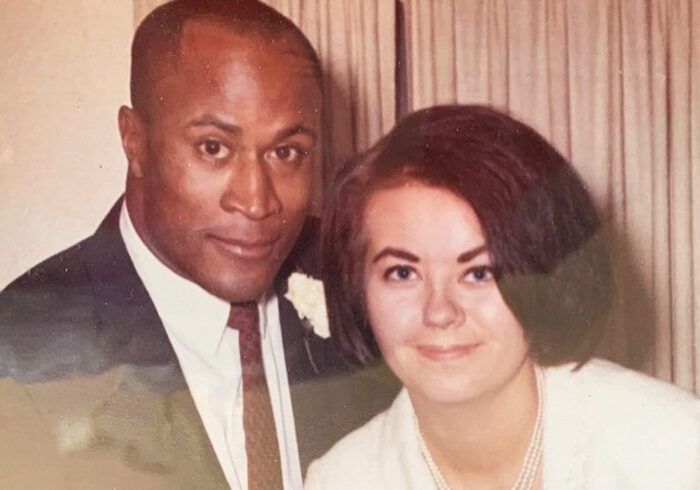Understanding your feelings is fundamental to navigating the complexities of any relationship, especially within the framework of polyamory.
Jealousy and emotional attachment are natural human emotions that can arise in polyamorous relationships just as they do in monogamous ones. However, recognizing and processing these feelings in a healthy way is crucial for building strong and fulfilling connections with multiple partners.
Start by creating a safe space for yourself to explore your emotions without judgment. Journaling, meditation, or talking to a trusted friend can help you delve into the root of your feelings.
Ask yourself questions like: What specifically triggers these feelings? Is it a fear of abandonment? Insecurity about your own worth? A perceived threat to the relationship? Identifying the underlying cause is the first step towards addressing it.
Remember that jealousy often stems from unmet needs. Are you feeling neglected or lacking attention from your partner(s)? Communicate openly and honestly with them about your needs and desires.
Healthy communication is essential in polyamorous relationships. It allows for transparency, understanding, and the establishment of clear boundaries.
Emotional attachment is another important aspect to consider. It’s natural to develop strong emotional bonds with multiple partners. Recognize that these attachments are valid and can enrich your life.
However, it’s important to distinguish between healthy attachment and possessiveness or codependence.

Cultivate a sense of independence within your relationships.
Encourage your partners to pursue their own interests and cultivate friendships outside of the relationship. This fosters personal growth and strengthens the overall dynamic.
Finally, remember that navigating jealousy and emotional attachment in polyamorous relationships is an ongoing process.
Be patient with yourself and your partners, and seek support from trusted friends, family members, or a therapist if needed.
Untangling the Knot: Jealousy and attachment are tricky emotions, even in monogamous relationships. In polyamory, things can feel amplified because you’re navigating multiple connections simultaneously. It’s important to remember that jealousy is a natural human response, but it doesn’t mean something is wrong with you or your relationship.
Recognizing the Triggers Think about what sets off your feelings of jealousy. Is it specific situations, certain behaviours, or even thoughts? Understanding your triggers can help you manage them more effectively. For instance, maybe seeing a partner post a loving message to someone else online makes you feel insecure.

Recognizing your jealousy triggers is a crucial step in navigating them effectively within a polyamorous relationship.
Here’s a breakdown of common jealousy triggers in this context:
-
Seeing Your Partner Express Affection Publicly to Someone Else: Social media posts, affectionate gestures, or even just conversations with other partners can trigger feelings of insecurity and possessiveness.
-
Unequal Time Allocation: Perceived imbalances in time spent with each partner can lead to jealousy, especially if one feels neglected or unimportant.
-
Differences in Intimacy Levels: Jealousy might arise when you perceive your partner having a deeper emotional or physical connection with another person.
-
Past Relationship Baggage: Previous experiences of infidelity, betrayal, or abandonment can make it harder to trust and cope with the complexities soft dildo of polyamory.
-
Fear of Replacement: A subconscious worry that your partner might choose another person over you, even if consciously they value all their relationships.
It’s important to remember that jealousy is a normal human emotion. However, allowing it to control your thoughts and actions can be detrimental. By identifying your triggers, you can start to develop healthy coping mechanisms.
Talking Things Through The key to navigating jealousy in polyamory is open and honest communication with all your partners. Share your feelings without blame or judgement. Remember, your partners want to support you and understand your needs.
Active Listening: When your partner shares their feelings about a situation, listen attentively and try to see things from their perspective. This doesn’t mean agreeing with them, but it shows that you care about their experience.
Active listening is a cornerstone of building security and trust in any relationship, but it becomes especially crucial in polyamorous dynamics where multiple partners’ emotions and experiences need to be acknowledged and validated.
When your partner expresses feelings about a situation, particularly those related to jealousy or insecurity stemming from the nature of your relationships, make a conscious effort to truly hear them. Put aside any immediate urge to offer solutions or defend your actions. Instead, focus your attention on understanding their perspective.
This means paying attention not only to their words but also to their body language and tone of voice. Notice any signs of anxiety, sadness, or anger. Reflect back what you hear to ensure you’re understanding correctly: “It sounds like you’re feeling hurt and worried because…”
Active listening doesn’t require agreement. You may not share their exact feelings, but acknowledging their emotions as valid is essential. Saying things like “That makes sense that you would feel that way” or “I can see why this is difficult for you” demonstrates empathy and creates a safe space for them to be open.
By actively listening, you’re showing your partner that their feelings matter. You are prioritizing their emotional needs within the relationship and validating their experience. This builds trust because it conveys that they can come to you with anything, knowing they will be heard and understood, even if you don’t agree with everything.
Remember, building security and trust in polyamorous relationships is an ongoing process that requires consistent effort and communication. Active listening is a powerful tool that can help foster understanding, empathy, and ultimately, stronger connections between partners.
Setting Boundaries TogetherBoundaries are crucial in polyamorous relationships. They help define what is acceptable and what isn’t for each individual and the overall relationship dynamic. Working together to establish these boundaries can create a sense of safety and security.
Cultivating Individual Growth:** Taking care of yourself emotionally and mentally can contribute to a stronger, more secure connection with your partners. Invest in activities that bring you joy and fulfillment outside of your relationships. Remember, personal growth can lead to deeper intimacy.
Get the story in full
See the full explanation online
- When Can I Sleep On My Side After Temple Filler? - May 22, 2025
- Botox Brow Lift In Highgate, London - May 22, 2025
- Neauvia Hydro Deluxe Skin Booster Treatments Near Shepperton, Surrey - May 22, 2025


